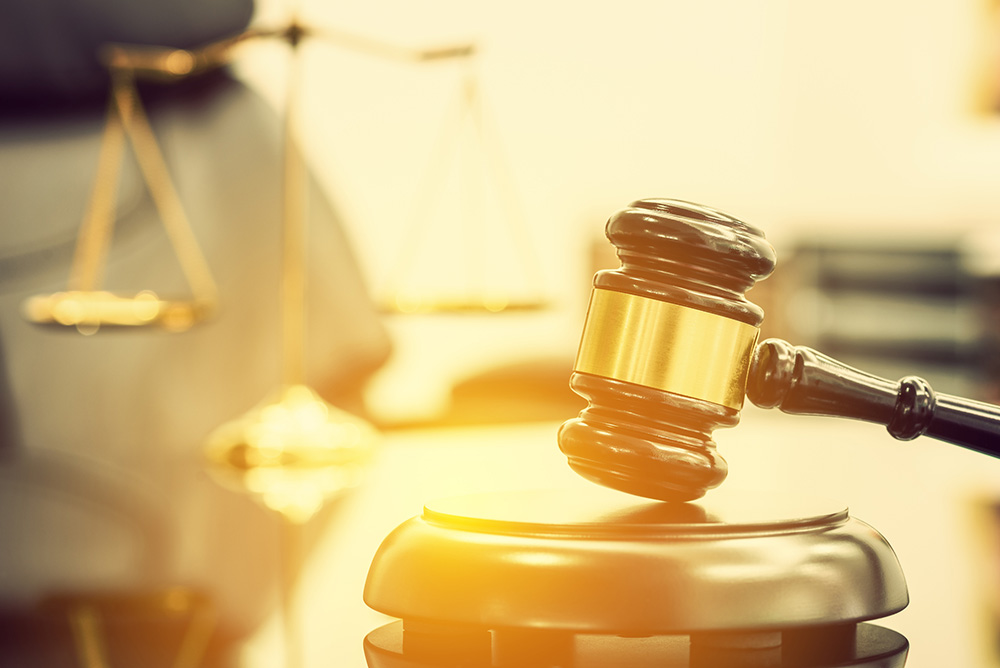
William_Potter / iStock/Getty Images Plus via Getty Images
The Washington Post slogan, “Democracy Dies in Darkness,” originating from a Sixth Circuit Judge and then adopted by Post Watergate reporter Bob Woodward, encapsulates the need for accountability and quality journalism to maintain our freedom. Unfortunately, many people seek to punish accountability journalism. This “punishment” can sometimes take the form of costly and frivolous lawsuits called SLAPP (Strategic Lawsuits Against Public Participation) suits. State anti-SLAPP laws give defendants an early motion to dismiss meritless claims, but unfortunately, the laws vary significantly among states and there is no federal anti-SLAPP law. However, there is currently federal legislation under consideration that would help discourage these frivolous lawsuits.
SLAPP suits are lawsuits designed to punish speech that is protected by the First Amendment. For example, a local news outlet published a public official’s public, derogatory comments about a local resident, and the public official sued the news publisher for defamation. In that case, the newspaper was quoting exactly what the public official said—fully within their First Amendment rights—but since the public official found this unfavorable, he sued the paper. In this and other similar cases, without legislative action, many news publishers are forced to incur costly litigation expenses with no guarantee they will recover attorney’s fees when they win the case.
Looking at the state anti-SLAPP laws, some states have strong anti-SLAPP laws, while others have very narrow ones. For example, while the state of Washington’s anti-SLAPP law has a provision that guarantees reasonable attorney’s fees for defendants who successfully use the law, Maryland’s law has no such provision. Not only can this be very costly for innocent defendants, it creates a large incentive for plaintiffs to “forum shop,” picking a jurisdiction with laws that favor their side of the case in which to bring their lawsuit.
Even more, with no federal anti-SLAPP law, the applicability of state anti-SLAPP laws in federal court is chaos. For example, Texas’ anti-SLAPP law does not apply in the Fifth Circuit (of which Texas is a member), but it does apply in the Ninth Circuit. With 31 state anti-SLAPP laws and 13 circuits, inconsistent rulings and forum shopping have reached new heights.
SLAPP could be avoided if there were uniformity on the state and federal level, and the Uniform Law Commission (ULC) has sought to do just that. Through in-depth research studying various states’ laws, including those that have been struck down, the ULC carefully crafted a model anti-SLAPP law, the Uniform Public Expression Protection Act (UPEPA), which will effectively protect First Amendment actors such as journalists.
Unlike narrow anti-SLAPP laws, the UPEPA applies broadly in order to protect all First Amendment activity. The law applies not only to communication related to governmental proceedings, but also any exercise of the right of freedom of speech or of the press, the right to assemble or petition, and the right of association.
Additionally, if a defendant succeeds on their anti-SLAPP motion, UPEPA grants them costs, reasonable attorney’s fees, and reasonable litigation expenses related to the motion. But anti-SLAPP laws do not give defendants a free pass—they serve as an accountability mechanism and there’s no guarantee that a defendant will win on their anti-SLAPP motion. If the defendant loses the motion, the plaintiff can recover fees if the court finds that the motion was frivolous or filed solely with intent to delay the proceeding. In this way, there’s accountability for both parties.
Accountability and consistency are pivotal for preserving free speech and a free press. Without consistency, predatory plaintiffs will continue to forum shop and seek to punish First Amendment activity for personal gain. Local news publications, private citizens and First Amendment activity will suffer as they are forced to participate in time-consuming and costly lawsuits. By passing the UPEPA on the state and federal level, there would be consistency, accountability, and security in the safety of First Amendment protections—thus assuring more truth is brought into public light.
For a more in depth survey of state anti-SLAPP laws, see the recent study by the Institute for Free Speech.

Natalie Seales is a First Amendment Law and Policy Fellow at the News Media Alliance.

